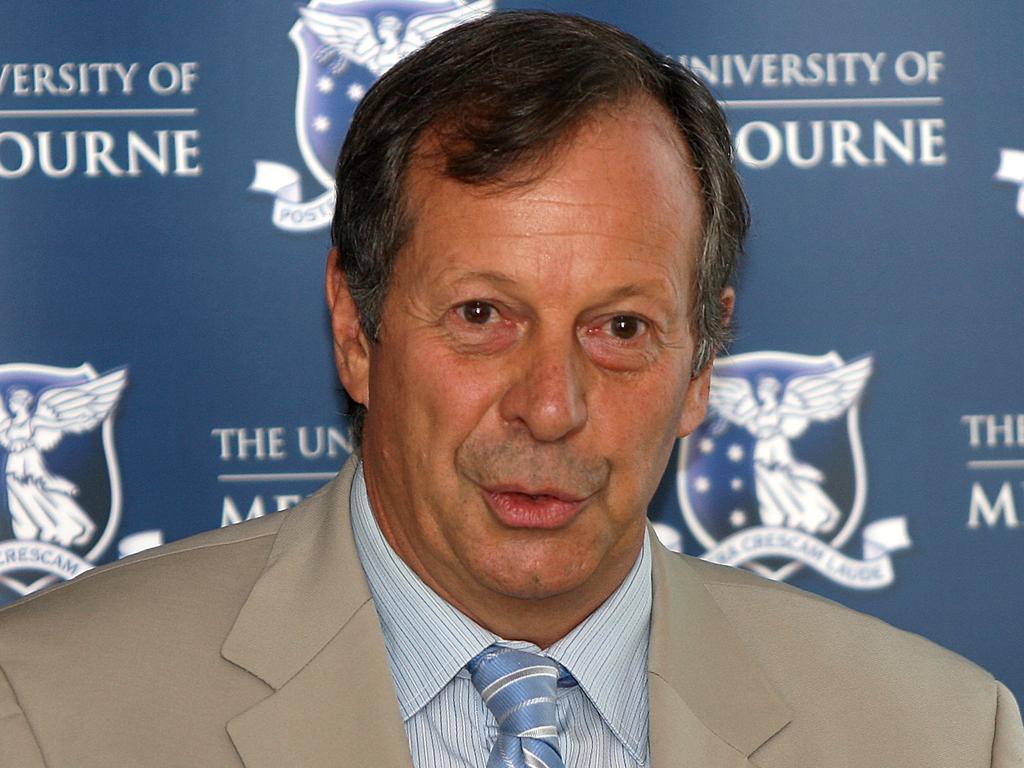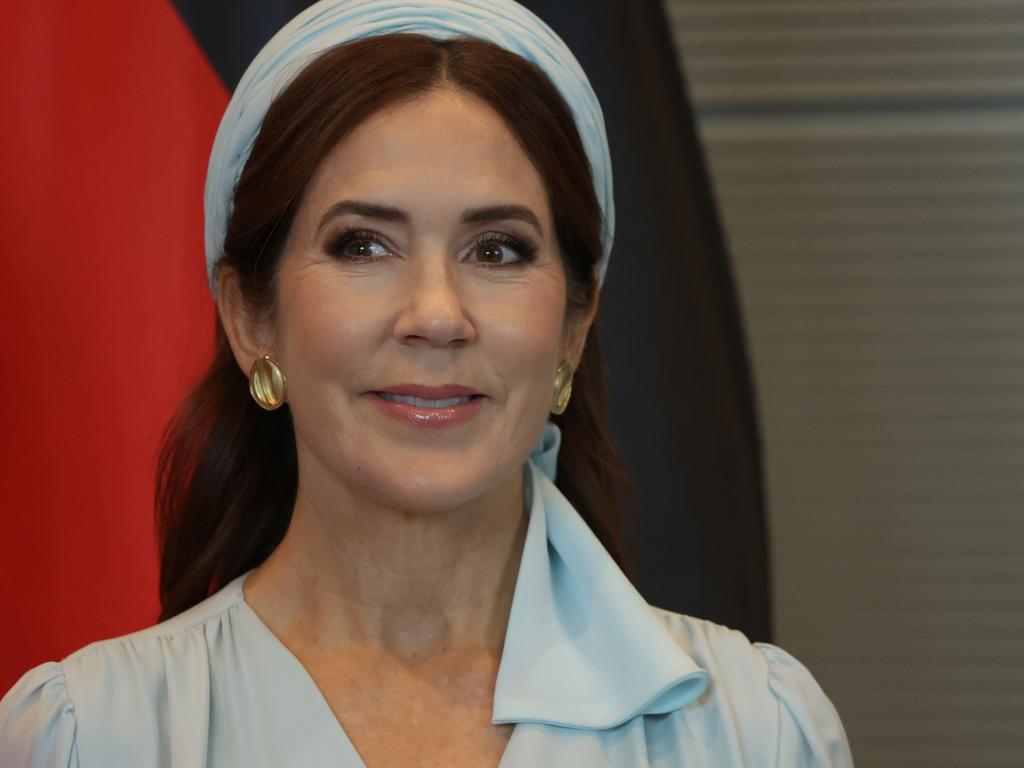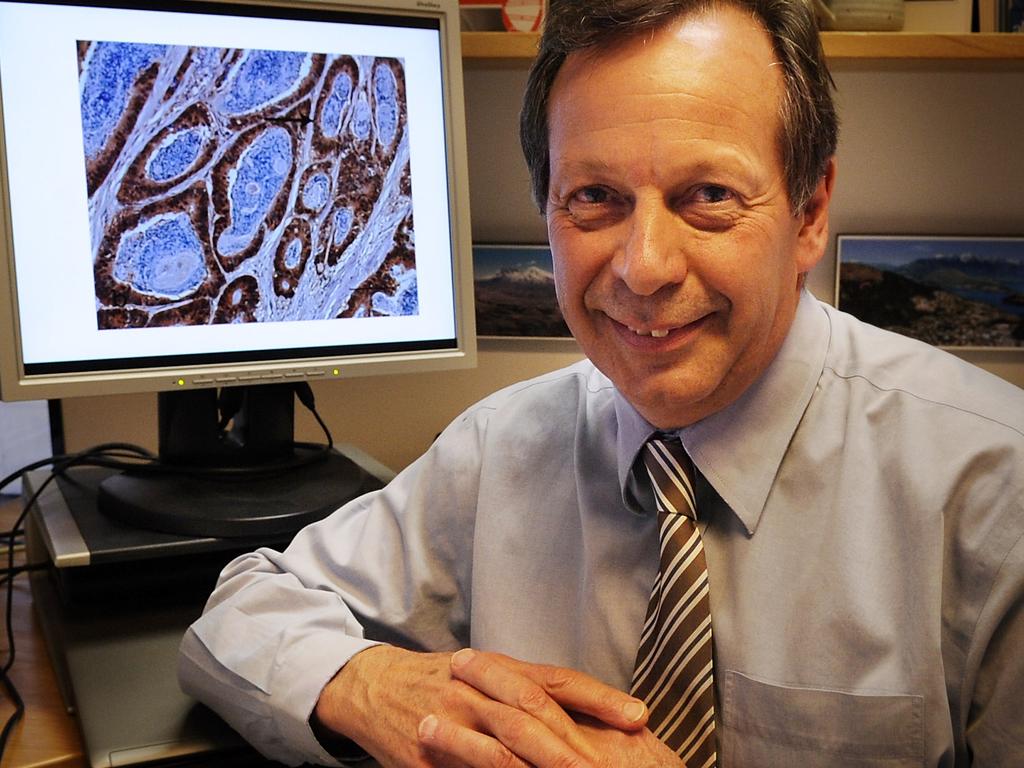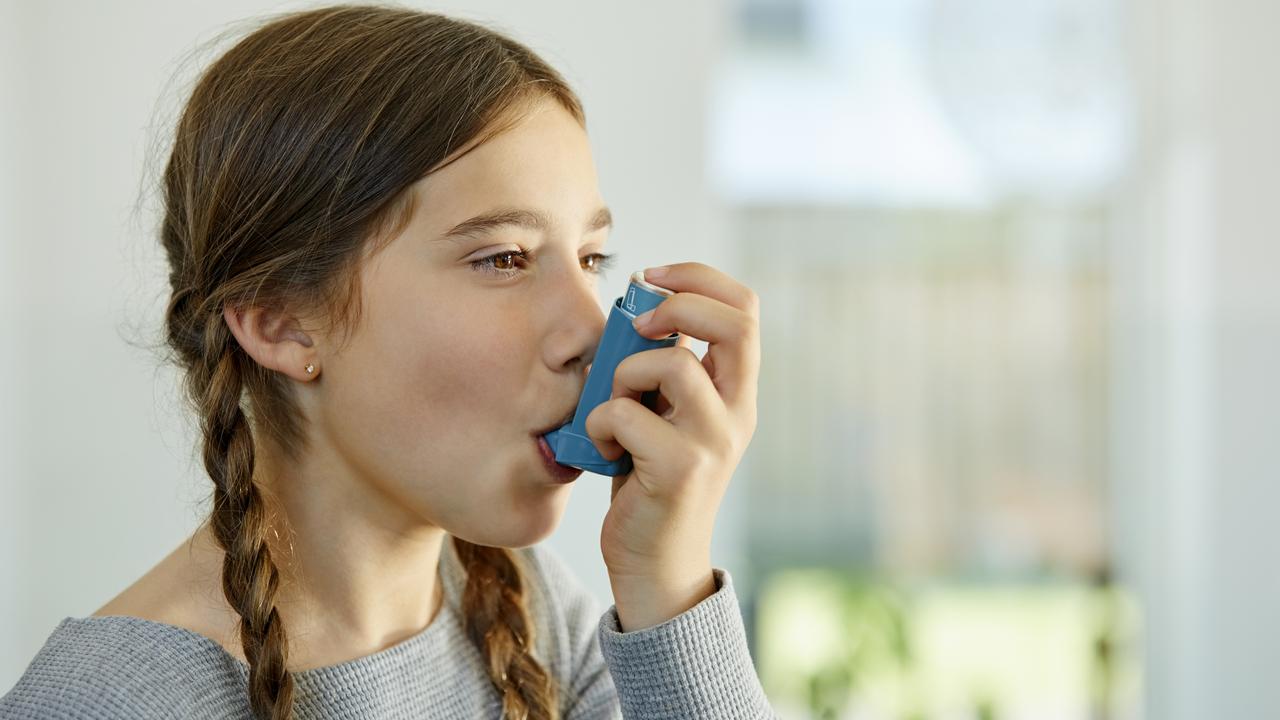Top Australian scientist dies suddenly, leaving lasting and lifesaving legacy
One of Australia’s leading genetic epidemiologists and breast cancer researchers has died suddenly in Melbourne, where he was co-chairing a major international scientific meeting.
Victoria
Don't miss out on the headlines from Victoria. Followed categories will be added to My News.
One of Australia’s leading genetic epidemiologists and breast cancer researchers has died suddenly in Melbourne where he was co-chairing a major international scientific meeting.
University of Melbourne Professor John Hopper, 74, was head of the Breast Cancer Unit in the Centre for Epidemiology and Biostatistics in the Melbourne School of Population and Global Health.
The highly respected researcher was chairing an international meeting hosted by his My Breast Cancer Risk Centre of Research Excellence team in the lead up to a two-day international conference on mammographic density in Melbourne.
Long-time friend and research collaborator Professor Graham Giles said they had clicked as soon as they met in 1983.

“We went on to do amazing things together,” the former director of the Cancer Epidemiology Division at Cancer Council Victoria said. “John was one out of the box. He was the brightest person I have known.”
Professor Giles is now retired but said the pair had often travelled together during their careers, “which was a nightmare because he was always forgetting things”.
Over 40 years they would co-author more than 1000 scientific papers.
“We were like opposite sides of the same coin; we energised each other,” Professor Giles said. “I was responsible for getting him interested in breast cancer and that really took off. We had similar (research) interests and strong ambitions to get things done.”
He said Professor Hopper was also a keen hockey player in his youth who maintained strong connections to the Kew Hockey Club.
“He would often talk about it and how much it had taught him about team building and team playing. John was a team player who brought people along, he mentored them.”
Dean of the Faculty of Medicine, Dentistry and Health Sciences at the University of Melbourne, Professor Jane Gunn, recalls how proud Professor Hopper was of the international meeting he had organised.
“It was bringing together some of the best minds to share new research and knowledge to help advance our understanding of mammographic density, a strong and heritable risk factor for breast cancer,” Professor Gunn said.

Another close friend and research collaborator Professor Kelly-Anne Phillips described the softly spoken Professor Hopper as a giant in his field.
The Peter MacCallum Cancer Centre medical oncologist said Professor Hopper was a fiercely original thinker who was able to think outside the square and bring new insights to the interpretation of complex scientific data.
“His influence was global, but in Australia he laid the foundations for the current systems of assessments of personal breast cancer risk, which are so critical to prevention of the disease,” Professor Phillips said.
“His generosity, and infectious passion for science, combined with his authenticity and integrity made him a wonderful mentor. His loss is deeply felt, but his contributions will live on.”
Professor Gunn said he was a renowned genetic epidemiologist who had made a difference to health and wellbeing worldwide.

She said in both breast cancer and colorectal cancer Professor Hopper’s research had made a “seminal contribution to understanding the roles genetic and environmental factors play”.
He was also known globally for his work as the director of Twins Research Australia, of which Queen Mary of Denmark, herself the mother of twins, is the Patron.
Over 35 years under his leadership it delivered unique insights into how the environment and genes impact health.
Professor Hopper said in an interview for Pursuit: “Twins allow us to control perfectly for one of the main variables in our health – genetics. Then we can drill down on the role that environmental factors are playing”.
Launched in 1982 it now has a treasure trove of more than 35,000 pairs of twins on its database and is the largest volunteer twin registry in the world.
Professor Rosemary McKenzie from the Melbourne School of Population and Global Health said as it director his contribution to medical and health research also extended to the areas of epilepsy, melanoma and mental health.
In 2008 Professor Hopper was made a Member of the Order of Australia for his service to public health and the biomedical sciences, particularly in the field of genetic epidemiology as an academic and researcher, and to the Australian Twin Registry.

In 2015 he was awarded a Redmond Barry Distinguished Professor title, in recognition of his outstanding leadership and that same year named a recipient of Victoria’s top science award. He was recognised for his outstanding contribution to understanding the roles of genetic and environmental factors on Australia’s major cancers and other diseases with significant clinical and population health benefits.
A bright student with a love of science, he studied mathematical statistics at Monash University and then did his PhD at La Trobe University before joining the University of Melbourne’s faculty of medicine as a research scientist.
In a statement the National Breast Cancer Foundation said it was deeply saddened by his passing.
“John was a greatly valued Board member and member of the NBCF Peer Review Committee, where his scientific expertise contributed to the funding of world-class breast cancer research over many years.
“His loss is considerable to the breast cancer community not only in Australia but worldwide, and he will be missed as a leading international researcher, thought leader, and as a great friend.”
His many friends agree.

“John will be remembered as a great friend, collaborator and mentor to many in our faculty community, and will be deeply missed. He was passionate about evidence, about challenging preconceived ideas, and above all, letting the data tell the story. He was a great scientist,” Professor Gunn said.
Professor Hopper leaves behind his partner of nine years Nguyen Anh Nguyen (Khang).
Originally published as Top Australian scientist dies suddenly, leaving lasting and lifesaving legacy








